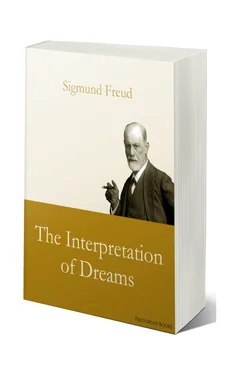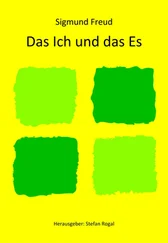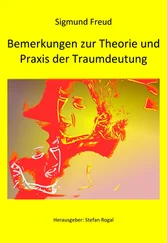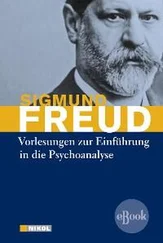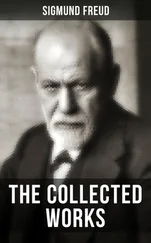These are essentially the same two categories of impressions, the insignificant and the unadjusted, which were emphasized by Robert, but Delage changes the connection by assuming that these impressions become the subject of dreams, not because they are indifferent, but because they are unadjusted. The insignificant impressions, too, are in a way not fully adjusted; they, too, are from their nature as new impressions "autant de ressorts tendus," which will be relaxed during sleep. Still more entitled to a rôle in the dream than the weak and almost unnoticed impression is a strong impression which has been accidentally detained in its elaboration or intentionally repressed. The psychic energy accumulated during the day through inhibition or suppression becomes the main-spring of the dream at night.
Unfortunately Delage stops here in his train of thought; he can ascribe only the smallest part to an independent psychic activity in the dream, and thus in his dream theory reverts to the ruling doctrine of a partial sleep of the brain: "En somme le rêve est le produit de la pensée errante, sans but et sans direction, se fixant successivement sur les souvenirs, qui ont gardé assez d'intensité pour se placer sur sa route et l'arrêter au passage, établissant entre eux un lien tantôt faible et indécis, tantôt plus fort et plus serré, selon que l'activité actuelle du cerveau est plus ou moins abolie par le sommeil."
In a third group we may include those dream theories which ascribe to the dreaming mind the capacity and propensity for a special psychic activity, which in the waking state it can accomplish either not at all or only in an imperfect manner. From the activity of these capacities there usually results a useful function of the dream. The dignity bestowed upon the dream by older psychological authors falls chiefly in this category. I shall content myself, however, with quoting, in their place, the assertions of Burdach, by virtue of which the dream "is the natural activity of the mind, which is not limited by the force of the individuality, not disturbed by self-consciousness and not directed by self-determination, but is the state of life of the sensible central point indulging in free play" (p. 480).
Burdach and others apparently consider this revelling in the free use of one's own powers as a state in which the mind refreshes itself and takes on new strength for the day work, something after the manner of a vacation holiday. Burdach, therefore, cites with approval the admirable words in which the poet Novalis lauds the sway of the dream: "The dream is a bulwark against the regularity and commonness of life, a free recreation of the fettered phantasy, in which it mixes together all the pictures of life and interrupts the continued earnestness of grown-up men with a joyous children's play. Without the dream we should surely age earlier, and thus the dream may be considered perhaps not a gift directly from above, but a delightful task, a friendly companion, on our pilgrimage to the grave."
The refreshing and curative activity of the dream is even more impressively depicted by Purkinje. "The productive dreams in particular would perform these functions. They are easy plays of the imagination, which have no connection with the events of the day. The mind does not wish to continue the tension of the waking life, but to release it and recuperate from it. It produces, in the first place, conditions opposed to those of the waking state. It cures sadness through joy, worry through hope and cheerfully distracting pictures, hatred through love and friendliness, and fear through courage and confidence; it calms doubt through conviction and firm belief, and vain expectations through realisation. Many sore spots in the mind, which the day keeps continually open, sleep heals by covering them and guarding against fresh excitement. Upon this the curative effect of time is partially based." We all feel that sleep is beneficial to the psychic life, and the vague surmise of the popular consciousness apparently cannot be robbed of the notion that the dream is one of the ways in which sleep distributes its benefits.
The most original and most far-reaching attempt to explain the dream as a special activity of the mind, which can freely display itself only in the sleeping state, was the one undertaken by Scherner in 1861. Scherner's book, written in a heavy and bombastic style, inspired by an almost intoxicated enthusiasm for the subject, which must repel us unless it can carry us away with it, places so many difficulties in the way of an analysis that we gladly resort to the clearer and shorter description in which the philosopher Volkelt presents Scherner's theories: "From the mystic conglomerations and from all the gorgeous and magnificent billows there indeed flashes and irradiates an ominous light of sense, but the path of the philosopher does not thereby become clearer." Such is the criticism of Scherner's description from one of his own adherents.
Scherner does not belong to those authors who allow the mind to take along its undiminished capacities into the dream life. He indeed explains how in the dream the centrality and the spontaneous energy of the ego are enervated, how cognition, feeling, will, and imagination become changed through this decentralisation, and how no true mental character, but only the nature of a mechanism, belongs to the remnants of these psychic forces. But instead, the activity of the mind designated as phantasy, freed from all rational domination and hence completely uncontrolled, rises in the dream to absolute supremacy. To be sure, it takes the last building stones from the memory of the waking state, but it builds with them constructions as different from the structures of the waking state as day and night. It shows itself in the dream not only reproductive, but productive. Its peculiarities give to the dream life its strange character. It shows a preference for the unlimited, exaggerated, and prodigious, but because freed from the impeding thought categories, it gains a greater flexibility and agility and new pleasure; it is extremely sensitive to the delicate emotional stimuli of the mind and to the agitating affects, and it rapidly recasts the inner life into the outer plastic clearness. The dream phantasy lacks the language of ideas; what it wishes to say, it must clearly depict; and as the idea now acts strongly, it depicts it with the richness, force, and immensity of the mode in question. Its language, however simple it may be, thus becomes circumstantial, cumbersome, and heavy. Clearness of language is rendered especially difficult by the fact that it shows a dislike for expressing an object by its own picture, but prefers a strange picture, if the latter can only express that moment of the object which it wishes to describe. This is the symbolising activity of the phantasy.... It is, moreover, of great significance that the dream phantasy copies objects not in detail, but only in outline and even this in the broadest manner. Its paintings, therefore, appear ingeniously light and graceful. The dream phantasy, however, does not stop at the mere representation of the object, but is impelled from within to mingle with the object more or less of the dream ego, and in this way to produce an action. The visual dream, e.g., depicts gold coins in the street; the dreamer picks them up, rejoices, and carries them away.
According to Scherner, the material upon which the dream phantasy exerts its artistic activity is preponderately that of the organic sensory stimuli which are so obscure during the day (comp. p. 29); hence the phantastic theory of Scherner, and the perhaps over-sober theories of Wundt and other physiologists, though otherwise diametrically opposed, agree perfectly in their assumption of the dream sources and dream excitants. But whereas, according to the physiological theory, the psychic reaction to the inner physical stimuli becomes exhausted with the awakening of any ideas suitable to these stimuli, these ideas then by way of association calling to their aid other ideas, and with this stage the chain of psychic processes seeming to terminate according to Scherner, the physical stimuli only supply the psychic force with a material which it may render subservient to its phantastic intentions. For Scherner the formation of the dream only commences where in the conception of others it comes to an end.
Читать дальше
